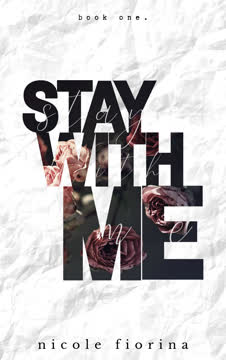Plot Summary
Shattered Beginnings, Numb Returns
The story opens with Mia and Ollie, two damaged souls at Dolor Reformatory, a school for troubled young adults in the UK. Ollie, numbed by medication and haunted by his brother's crimes, pushes Mia away after learning she slept with his brother Oscar. Mia, devastated, clings to the hope of their love, but Ollie's emotional absence leaves her adrift. The narrative is raw, exploring the aftermath of sexual trauma, addiction, and the struggle to feel anything at all. Their separation sets the stage for a year of pain, growth, and the search for healing.
Seven Months of Absence
Mia endures seven months without Ollie, finding solace in music, therapy, and new friendships. She forms a support group for survivors of sexual abuse, grows close to Bria and Jake, and is comforted by Ethan, a security guard with his own tragic past. Nightmares and self-doubt plague her, but she refuses to let go of Ollie's memory. Rumors swirl about Ollie's absence, and Mia's world is colored by longing, resilience, and the slow rebuilding of self-worth.
Haunted by Nightmares
Mia's nights are tormented by nightmares, and Ethan becomes her anchor, pulling her from the darkness. Their relationship is complex—part protector, part surrogate family, and tinged with unspoken longing. Mia's trauma manifests in physical and emotional ways, and the boundaries between friendship and something more blur. Meanwhile, a series of cruel pranks—including a mutilated cat and glass in her mattress—target Mia, deepening her sense of vulnerability and isolation.
The Return of Ollie
Ollie returns to Dolor after months in jail, detoxing from medication and wracked with guilt and confusion. His reunion with Mia is explosive—passionate, angry, and fraught with unresolved pain. The medication dulls his emotions, making him unpredictable and sometimes cruel. Their love is tested by jealousy, misunderstandings, and the ghosts of their pasts. Ollie's struggle to reclaim his feelings and identity is mirrored by Mia's fight to trust again.
Love, Medication, and Madness
Ollie's emotional intensity disorder and the effects of medication become central conflicts. He oscillates between numbness and overwhelming feeling, pushing Mia away and then desperately clinging to her. Their relationship is a storm of passion, hurt, and hope. Mia tries to help Ollie, but the side effects of his treatment—anger, sexual dysfunction, and mood swings—threaten to destroy them both. The narrative delves into the complexities of mental illness, trauma, and the limits of love.
The Prankster's Shadow
The pranks against Mia intensify, culminating in her being stabbed and nearly killed. Suspicion falls on various students, especially Jude and Maddie, but the truth remains elusive. The atmosphere at Dolor grows tense and paranoid, with everyone a potential suspect. Mia and Ethan investigate, uncovering secrets in student files and realizing the depth of the threat. The sense of danger is ever-present, and trust becomes a rare commodity.
Fractured Friendships, New Bonds
Mia's friendships with Bria, Jake, and Tyler are tested by betrayal, jealousy, and the fallout from her stolen journal, which exposes everyone's secrets. The group splinters, and Mia is ostracized, but new bonds form in unexpected places. Zeke, a mute student, becomes a silent anchor for Mia and Ollie, while Ethan's role as protector grows more complicated. The narrative explores the fragility of trust and the ways trauma can both divide and unite.
The Spiral of Despair
A series of suicides at Dolor shakes the community, forcing everyone to confront their own pain and the inadequacy of the system meant to help them. Ollie is deeply affected, feeling the weight of every loss and the responsibility to protect those he loves. The vigil for lost students becomes a moment of collective mourning and reflection. The story does not shy away from the darkness, but also highlights the importance of compassion and connection.
The Truth About Bria
The true identity of the prankster is revealed: Bria is actually Madilyn, suffering from a delusional disorder and obsessed with Ollie. She orchestrated the attacks on Mia, manipulated others, and ultimately becomes violent. The revelation is devastating, as it exposes the depth of betrayal and the consequences of untreated mental illness. The climax is a harrowing confrontation that leaves Zeke dead, Madilyn killed, and Ollie and Mia forever changed.
The Breaking Point
The confrontation with Madilyn is brutal—she holds Mia at knifepoint, and Zeke sacrifices himself to save her. Ollie, in a fit of rage and desperation, kills Madilyn. The aftermath is chaos: police investigations, grief, and the shattering of what little innocence remained. The trauma ripples through the community, forcing everyone to reckon with the cost of survival and the meaning of justice.
Zeke's Sacrifice
Zeke's death is a turning point, marking the end of innocence and the beginning of healing. His funeral is a moment of collective grief and remembrance, with Ollie delivering a heartfelt eulogy. Zeke's legacy is one of love, hope, and the reminder that even the quietest among us can make the greatest impact. His loss cements the bond between Mia and Ollie, and inspires them to live fully in his honor.
Aftermath and Farewell
In the wake of tragedy, Mia and Ollie focus on healing and planning for the future. Friendships are mended, secrets are confessed, and the couple prepares for life beyond Dolor. The narrative shifts from survival to hope, as they dream of a home together, careers, and a family. The scars of the past remain, but they are no longer defined by them. The story emphasizes resilience, forgiveness, and the power of love to overcome even the deepest wounds.
Healing, Hope, and Release
Release day arrives, and Mia and Ollie finally leave Dolor behind. Their journey is not without obstacles—legal issues, lingering trauma, and the uncertainty of the future—but they face it together. The final chapters are filled with tenderness, humor, and the quiet joy of ordinary moments. The couple's love, tested by fire, emerges stronger and more enduring. The narrative closes on a note of hope, with the promise of new beginnings and the belief that love can heal even the most broken hearts.
The Woods: Full Circle
The story comes full circle as Mia, Ollie, and their friends gather in the woods for one last truth-telling session. Old wounds are aired, confessions made, and forgiveness granted. The woods, once a place of fear and pain, become a symbol of growth and renewal. The group acknowledges their shared history and the ways they have changed, choosing to move forward with honesty and compassion.
The Final Goodbye
As graduation approaches, Mia and Ollie say goodbye to Dolor, their friends, and the ghosts of their pasts. They make plans for the future—marriage, travel, and a home of their own. The farewells are bittersweet, marked by gratitude for the lessons learned and the love found. The narrative honors the pain of letting go, while celebrating the courage to begin again.
The Weight of the Past
Ollie and Mia face the lingering effects of their trauma—guilt, shame, and the fear of repeating old patterns. Through therapy, honesty, and mutual support, they learn to forgive themselves and each other. The story does not offer easy answers, but insists on the possibility of healing. The past is acknowledged, but it no longer dictates the future.
The Unmasking
The final secrets are revealed: Lynch is Mia's biological father, Ethan's quest for justice is rooted in his sister's death, and the true nature of love is laid bare. The unmasking is both painful and liberating, allowing the characters to move forward with clarity and purpose. The narrative underscores the importance of truth, even when it hurts, and the necessity of facing one's demons.
Love's Enduring Light
The story ends with Mia and Ollie, scarred but unbroken, stepping into the light of a new life. Their love, forged in suffering and tested by every imaginable trial, endures. The final message is one of hope: that even when everything is lost, love remains. The epilogue hints at ongoing struggles, but also at the possibility of redemption and the promise of forever.
Characters
Mia Jett
Mia is the emotional core of the story—a young woman scarred by sexual abuse, abandonment, and betrayal, but determined to reclaim her life. Her journey is one of survival, self-discovery, and the search for love that heals rather than harms. Mia is complex: vulnerable yet strong, guarded yet deeply compassionate. Her relationships—with Ollie, Ethan, Bria, and Zeke—reveal her capacity for forgiveness and her refusal to be defined by her trauma. Over the course of the novel, Mia transforms from a victim to a survivor, learning to trust, love, and hope again.
Oliver "Ollie" Masters
Ollie is a study in contradictions: sensitive and volatile, loving and self-destructive, haunted by his brother's crimes and his own mental illness. His love for Mia is both his salvation and his undoing, driving him to the brink of madness and back. Ollie's struggle with emotional intensity disorder and the effects of medication are central to his arc. He is fiercely loyal, willing to sacrifice everything for those he loves, but also prone to jealousy and rage. Through therapy, self-reflection, and Mia's unwavering support, Ollie learns to accept himself and build a future beyond pain.
Ethan Scott
Ethan is a security guard at Dolor, marked by the loss of his sister Livy to suicide and driven by a need to protect others. His relationship with Mia is layered—part surrogate brother, part would-be lover, part avenger. Ethan's own trauma and anger make him both a source of comfort and a potential threat. His quest for justice for Livy parallels Mia and Ollie's search for healing, and his eventual acceptance of their love is a testament to his growth. Ethan's story is one of grief, loyalty, and the struggle to let go.
Bria / Madilyn
Bria, later revealed as Madilyn, is a complex antagonist—driven by obsession, mental illness, and a desperate need for love. Her manipulation, violence, and ultimate breakdown are both terrifying and pitiable. Madilyn's actions are the catalyst for much of the novel's tragedy, but her story is also a cautionary tale about the consequences of untreated mental illness and the dangers of isolation. Her unmasking is a moment of horror and sorrow, forcing the other characters to confront the limits of compassion and the reality of evil.
Zeke
Zeke is a mute student at Dolor, whose quiet presence and gentle spirit provide stability for Mia and Ollie. His love of music, friendship with Mia, and ultimate sacrifice make him a symbol of innocence and the possibility of redemption. Zeke's death is a devastating loss, but his legacy endures in the love and hope he inspired. He represents the power of kindness and the importance of being seen.
Jake
Jake is Mia's gay best friend, whose humor and honesty provide levity amid the darkness. His struggles with acceptance, love, and identity mirror the larger themes of the novel. Jake's relationship with Liam, his loyalty to Mia, and his resilience in the face of betrayal make him a beloved and essential character.
Tyler
Tyler is a fellow survivor of sexual abuse, whose journey parallels Mia's in many ways. She is pragmatic, sometimes cynical, but ultimately hopeful. Tyler's relationships—with Jude, Bria, and Mia—are marked by honesty and a refusal to sugarcoat reality. Her growth is a testament to the power of support and the importance of facing the truth.
Jude
Jude is a new student at Dolor, marked by the guilt of causing his girlfriend's death in a drunk driving accident. His initial suspicion as the prankster, his complicated relationships, and his eventual redemption make him a nuanced and sympathetic figure. Jude's story is one of self-forgiveness and the search for belonging.
Dean Lynch
Lynch is the dean of Dolor, whose stern exterior hides a deep connection to Mia—he is her biological father. His efforts to protect Mia, his guilt over past failures, and his struggle to balance duty and love add layers to his character. Lynch's secrets and eventual honesty are crucial to the resolution of the story.
Oscar
Oscar, Ollie's brother, is the shadow over the entire narrative—a perpetrator of sexual violence, manipulator, and the catalyst for much of Ollie's pain. Though largely offstage, his influence is felt in every chapter, shaping Ollie's fears, Mia's trauma, and the atmosphere of Dolor.
Plot Devices
Dual Narration and Shifting Perspectives
The novel employs a dual narrative, alternating between Mia and Ollie's perspectives. This structure allows for a deep exploration of both characters' inner worlds, highlighting the ways trauma, love, and mental illness shape their experiences. The shifting perspectives also create dramatic irony, as the reader is privy to secrets and misunderstandings that the characters themselves must unravel. This device heightens tension, fosters empathy, and underscores the theme that every story has more than one side.
Unreliable Memory and Psychological Realism
Both Mia and Ollie struggle with unreliable memories, flashbacks, and the effects of medication and trauma. The narrative frequently blurs the line between past and present, reality and nightmare, forcing the reader to question what is real. This psychological realism is central to the novel's exploration of healing, as the characters must confront not only external threats but also the demons within. The use of dreams, hallucinations, and fragmented recollections adds depth and complexity to the storytelling.
Foreshadowing and Symbolism
The novel is rich in foreshadowing and symbolism—origami roses, music, the woods, and the recurring phrase "even when I'm gone" all serve as touchstones for the characters' journeys. These motifs create a sense of continuity and inevitability, linking the past to the present and hinting at the possibility of redemption. The use of symbolic settings (the library, the woods, the bathroom) grounds the emotional stakes in physical spaces, making the characters' struggles feel immediate and real.
The Prankster Mystery
The escalating pranks against Mia serve as a central plot device, creating suspense and paranoia. The search for the prankster forces the characters to question each other, confront their own biases, and ultimately face the truth about Bria/Madilyn. This device not only propels the plot but also serves as a metaphor for the hidden dangers of untreated mental illness and the consequences of ignoring warning signs.
Therapy and Self-Reflection
Therapy sessions, journaling, and self-reflection are woven throughout the novel, providing both exposition and character development. These devices allow the characters to process their trauma, articulate their hopes and fears, and move toward healing. The emphasis on therapy underscores the novel's message that recovery is possible, but requires honesty, vulnerability, and support.
Analysis
Even When I'm Gone is a raw, unflinching exploration of trauma, love, and the long road to healing. Nicole Fiorina crafts a narrative that refuses easy answers, insisting instead on the messy, nonlinear nature of recovery. The novel's greatest strength lies in its psychological depth—its willingness to confront the darkest corners of the human experience, while still holding space for hope, humor, and tenderness. Through the intertwined journeys of Mia and Ollie, the story examines the ways love can both wound and heal, the importance of community, and the necessity of facing the truth, no matter how painful. The book is a testament to resilience: that even when everything is lost, even when the past seems insurmountable, it is possible to choose life, to choose love, and to find light in the darkness. The ultimate lesson is that healing is not about erasing the past, but about learning to live with it—and that, even when we are gone, the love we give endures.
Last updated:
Review Summary
Even When I'm Gone received mixed reviews, with many praising the emotional depth and beautiful writing style. Readers appreciated the character development and intense romance between Mia and Ollie. However, some found the plot repetitive and unrealistic. The book explores mental health themes and includes dark content, which resonated with many readers but was too intense for others. Many reviewers noted the story's ability to evoke strong emotions and keep them engaged, despite some frustrations with character decisions. The cliffhanger ending left readers eager for the next installment.
Stay with Me Series
Similar Books
Download PDF
Download EPUB
.epub digital book format is ideal for reading ebooks on phones, tablets, and e-readers.











